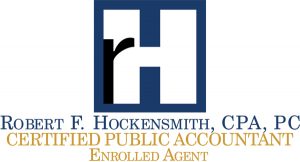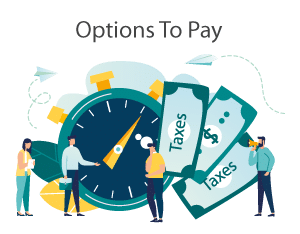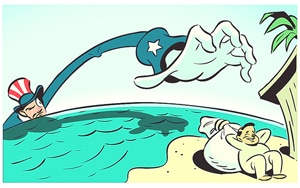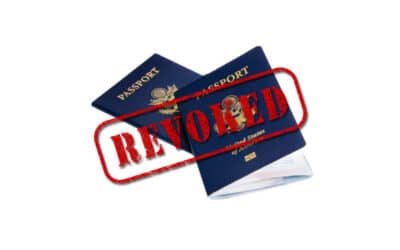Blog
Paying Income Taxes and
Estimated Taxes
Paying Income Taxes and Estimated Taxes
Paying Income Taxes and Estimated Taxes The tax season is almost ending, and like any other law-abiding, taxpaying citizen of the country, Chris is aware of his options. He knows that there are four ways to pay personal income taxes. For convenience and efficiency, these are the available options:
- Never send cash in the mail.
- You can pay up to $1,000 a day at all nationwide 7-Eleven stores, for a fee. Contact https://www.Azmoneyguy.com or go to https://www.irs.gov/payments for further details.
- If you e-file, you can file and pay in a single step with an electronic funds withdrawal. If you e-file on your own, you can use your tax preparation software to make the withdrawal. If you use a tax professional to e-file, you can ask the preparer to make your tax payment electronically.
- You can pay taxes electronically any day of the week and any time of the day. See Azmoneyguy or go to https:/www./irs.gov/payments for further details.
- You can also pay by check or money order. Make your check or money order payable to the “United States Treasury.” Be sure to list the social security number and the tax period that the payment is to be applied to. If you do not, then the IRS or State Department of Revenue, or Franchise Tax Board can assign the payment to the period they want to, and this could increase penalties and interest if there are other year’s taxes owed as well.
- Pay your taxes in person (most local IRS offices will accept payments from taxpayers in person, but you must schedule an appointment to see them.)
7. Whether you e-file your tax return or file on paper, you can also pay with a credit or debit card. The credit card company that processes your payment will charge a processing fee. And the IRS may charge a convenience fee if you use a credit card to pay income taxes, too.
8. You may be able to deduct the credit or debit card processing fee on next year’s return, on income tax returns before 2018. These fees are deductible on business returns. This includes IRS form Schedule C businesses as well as other business returns!
9. Be sure to write your name, address, and daytime phone number on the front of your payment. Also, write the tax year, form number you are filing and your Social Security number.
10. Complete Form 1040-V, Payment Voucher, and mail it with your tax return and payment to the IRS. Make sure you send it to the address listed on the back of Form 1040-V. This will help the IRS process your payment and post it to your account. You can get the form on IRS.gov.
11. Remember to enclose your payment with your tax return but do not staple it to any tax form.
12. Pay your tax bill monthly if you are not able to pay in full. Enter an installment plan with the Internal Revenue Service. Therefore, if you owe up to $50,000 you will be able to file a form 9465 and inform the IRS as to what date, each month, the tax bill will be paid and what amount. If your payment is completed within six years (72 months) of the beginning date of the plan, the IRS is required to accept the plan under the new Regulations, and they will NOT file a tax lien against you or your property.
However, if more than $50,000 is owed, a form 9465 and a financial statement disclosure form 433A for personal assets and a form 433B, if a business is owned, are required. If you owe more than $50,000, the IRS WILL file a tax lien against you, while you are making payments. Each program also charges a setup fee and interest. The interest charged is compounded DAILY, not monthly!
You must also agree to keep current on tax filings and future tax payments for the next 5 years as well. This plan is for ONE time only. It is not meant to be used year after year, and the IRS will terminate the plan after you start it, if you do not pay future taxes on time while you have the installment plan in place. This means you will have to start over again and pay the fees again to re-instate the new plan. (Form 9465 allows you six years (72 months) to pay taxes. Both businesses and individuals can set up payment plans.)
- You can also ask for a SHORT extension of up to 120 days to pay. This short-term extension is available on the IRS website, under the Online Payment Agreement tool. With the extension, there are reduced penalties and interest and no setup fee is required.
- You can also request an Offer in Compromise (OIC) as a last resort. The OIC is a way to reduce the amount of taxes owed to the IRS. You can’t have any unfiled tax returns, to request an OIC. This is a lengthy process with no guarantee that the OIC will be accepted. Offers in Compromise should be processed and completed by a tax professional.
This is not a DIY program! Fees vary among tax professionals, so ask around. Find someone who has successfully completed OICs before. The IRS will want to know about all your income and expenses from all sources and may not agree on how much you spend on living expenses. If you qualify, the OIC program is a great way to get a fresh start and a clean slate with the IRS.
- Congress passed a law that allows the US State Department to deny or revoke your passport if you owe the IRS $50,000 or more, and do not have a written payment agreement in place.
- Many states allow the same opportunities, (in-person payments, mailing checks, payment plans, credit cards, automatic withdrawals from checking or saving accounts, and offers in compromise.) Check with your state for local rules.
If you don’t have taxes withheld from your pay, or you don’t have enough taxes withheld, then you may need to make Estimated Tax Payments for the current year. If you’re self-employed, you normally pay your taxes this way.
Here are some tips you should know about Estimated Taxes:
- You should pay estimated taxes in the current year if you expect to owe $1,000 or more when you file your federal tax return. Special rules apply to farmers and fishermen.
- Estimate the amount of income you expect to receive for the year to determine the amount of taxes you may owe. Make sure that you consider any tax deductions and credits that you will be eligible to claim. Life changes during the year, such as a change in marital status or the birth of a child, can affect your taxes.
- You normally make estimated tax payments four times a year. The dates that apply to most people are April 15, June 16, Sept. 15 and Jan. 15 of next year (for the previous year ended).
- You may pay online or by phone. You may also pay by check or money order, or by credit or debit card. If you mail your payments to the IRS, use the payment vouchers that come with Form 1040-ES, Estimated Tax for Individuals.
- You can now pay your estimates in cash (up to $1000 daily), at any 7-Eleven store in the US. Go to http://www.irs.gov/payments for details.
- See Azmoneyguy or another tax professional to find out if you owe estimated taxes.
Call today, don’t delay! See how this affects you. We can be reached at 602-264-9331 and on all social media under azmoneyguy.
Related Blog Posts
Tax Tips for New Businesses and Self-Employed Taxpayers
www.AZMONEYGUY.com(602) 264-9331 Call 24x7Blog Tax Tips for New Businesses and Self-Employed Taxpayers[DISPLAY_ULTIMATE_SOCIAL_ICONS] Josephine perfected the art of baking. Her cookies, cakes and pies were always a hit amongst friends and family who...
Tips for U.S. Taxpayers with Foreign Income
www.AZMONEYGUY.com(602) 264-9331 Call 24x7Blog Tips for U.S. Taxpayers with Foreign Income[DISPLAY_ULTIMATE_SOCIAL_ICONS] It’s not like ‘Out of sight, out of mind’. You can’t do that with the taxes you owe to your country of residence or origin. While...
IRS Urges Travelers Requiring Passports to Pay Their Taxes or Enter into Payment Agreements; (People Owing More than $50,000)
www.AZMONEYGUY.com(602) 264-9331 Call 24x7Blog IRS Urges Travelers Requiring Passports to Pay Their Taxes or Enter into Payment Agreements; (People Owing More than $50,000)[DISPLAY_ULTIMATE_SOCIAL_ICONS] Flying off to an international destination and...
Do You Owe The IRS?
Learn 5 Secrets The IRS Doesn't Want You To Know.
Click on the button below to get FREE access to this exclusive content.
Get Expert Tax Advice from an expert
Mr. Hockensmith has been a guest newscaster for national and local TV stations in Phoenix since 1995, broadcasting financial and tax topics to the general pubic. He has written tax and accounting articles for both national and local newspapers and professional journals. He has been a public speaker nationally and locally on tax, accounting, financial planning and economics since 1992. He was a Disaster Reservist at the Federal Emergency Management Agency, for many years after his military service. He served as a Colonel with the US Army, retiring from military service after 36 years in 2008. Early in his accounting career, he was a Accountant and Consultant with Arthur Andersen CPA’s and Ernst & Young CPA’s.

